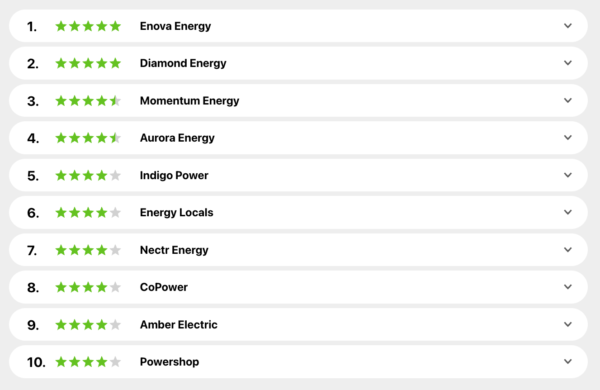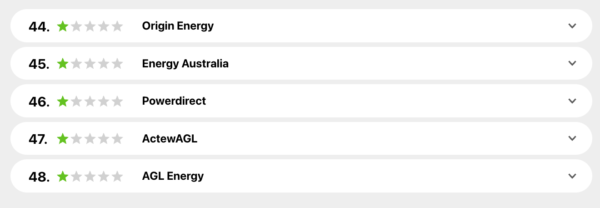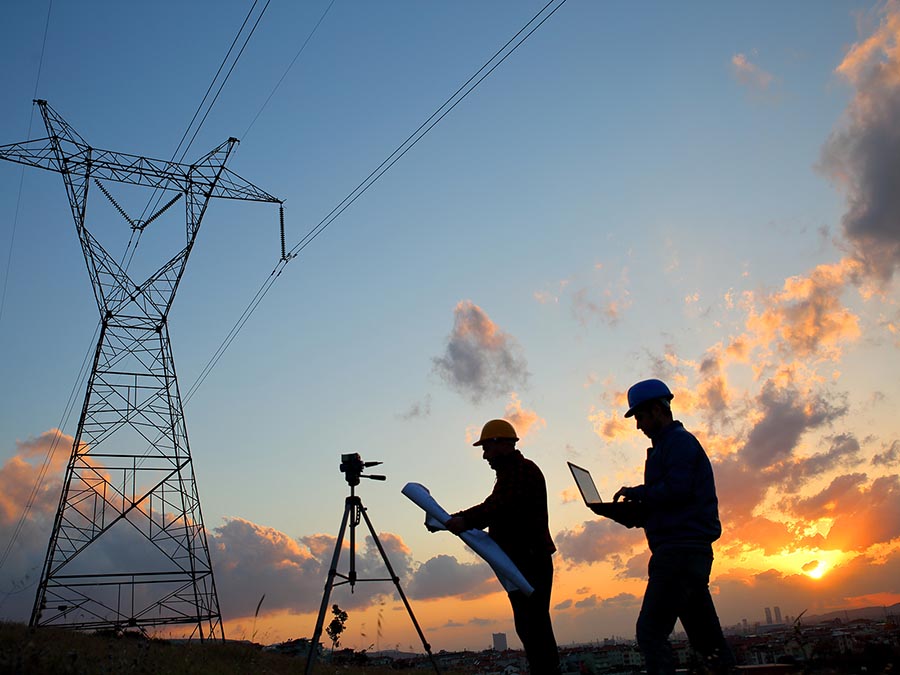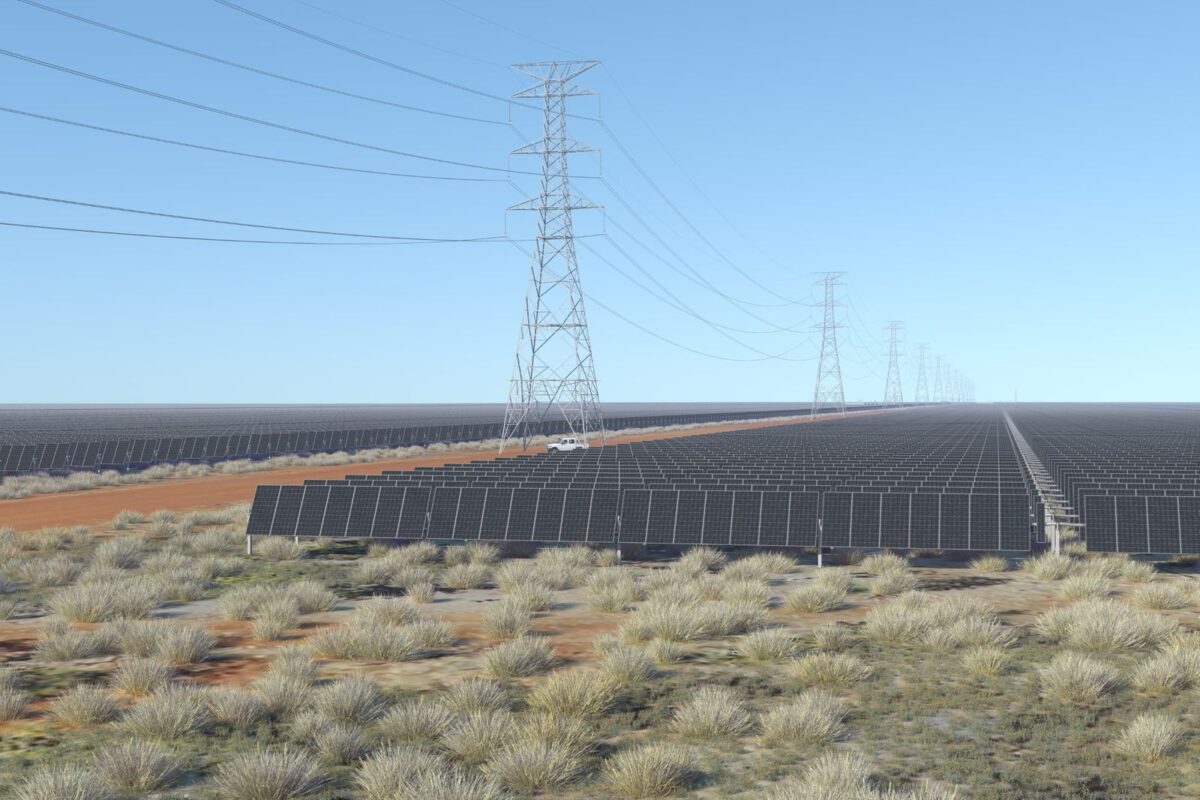Greenpeace Australia has published its latest Green Electricity Guide, presumably prompted by the acquisition of its former star, Powershop, by fossil fuel giant Shell. The updated guide has community owned company Enova Energy and Diamond Energy tied in first place, with Powershop dropping to 10th place nationally.
AGL, Australia’s largest energy provider, placed dead last with a score of just one star. It wasn’t the only giant stranded at the bottom with Origin Energy, Energy Australia and ActewAGL also scoring just one star.

Greenpeace
The 48 energy providers included in the guide were ranked according to the following six criteria: providing renewable energy; committing to ending coal use by 2030; halting fossil fuel expansion; supporting new renewable energy; transparency in marketing; and pollution and environmental harm.
28 of the 48 electricity companies assessed by Greenpeace scored three stars or below. In other words, the clear majority of Australian retailers were found to not be particularly green.

Greenpeace
Calls for transparency around carbon emissions intensity
The updated guide, first published by Greenpeace Australia Pacific back in 2018, has sparked calls for information surrounding the emissions intensity of retailers’ power sales to be made public.
Partnering with Greenpeace on the guide, the Total Environment Centre (TEC) is considering formally proposing a change to the National Electricity Rules which would require all retailers to calculate and publish such information.
“There is only one source of the electrons that flow to your home or business,” TEC’s Energy Market Advocate Mark Byrne said. “But retailers have choices about where they buy their electricity from. Unfortunately, at present that information is very difficult to obtain. We want to make it mandatory and transparent.”
Greenpeace Australia Pacific senior campaigner Glenn Walker said the guide aims to “cut through the increasingly common practice of greenwashing.”
“Many companies continue using dirty coal, while spruiking the use of carbon offsets which often do more harm than good,” Walker said.
Around 76% of Australia’s electricity still comes from the burning of fossil fuels today, with the country found to have the highest greenhouse gas emissions from coal power in the world on a per capita basis, according to Greenpeace.
The winners, the losers
Enova Energy and Diamond Energy both scored a perfect five stars, though for different reasons.
Enova Energy is a small, community owned retailer based in Byron Bay. It gives half its profits back to the community and sources electricity via customer distributed solar panels, Greenpeace said.
Diamond Energy retained first place (in 2018, it tied with Powershop) by offering 100% renewable power and also investing in renewable energy.
“Enova, Diamond Energy, Energy Locals and other new, small retailers are challenging the big three (Origin, AGL and EnergyAustralia) with their commitment to source only renewable energy for their customers,” TEC’s Mark Byrne said. “These new retailers are introducing improved ways of serving their customers, including tariffs that allow people to buy from and sell to the grid at times that suit them. They are also committed to working with communities to ensure that the power and profits stay local. Some, like Enova, are investing in innovations like community scale batteries, to make the most use of rooftop solar energy exported to the grid.”
Powershop lost its top spot, dropping down to 10th position following its acquisition by Shell which caused widespread outrage. The sale of what was previously labelled ‘Australia’s greenest electricity provider’ to the fossil fuel giant reportedly caused around 6000 customers to close their Powershop accounts after it was announced last November.
Greenpeace said AGL earned its position at dead last because of the company’s commitment to burning coal until 2048, its frequent local environmental harm, and continued coal mining. ““AGL is Australia’s biggest climate polluter, accounting for about 8% of Australia’s greenhouse gas emissions. 83% of AGL’s generation comes from burning coal, and the company continues to hide behind greenwashing efforts and a dodgy planned demerger instead of taking meaningful action,” Greenpeace’s Glenn Walker said.
This content is protected by copyright and may not be reused. If you want to cooperate with us and would like to reuse some of our content, please contact: editors@pv-magazine.com.









By submitting this form you agree to pv magazine using your data for the purposes of publishing your comment.
Your personal data will only be disclosed or otherwise transmitted to third parties for the purposes of spam filtering or if this is necessary for technical maintenance of the website. Any other transfer to third parties will not take place unless this is justified on the basis of applicable data protection regulations or if pv magazine is legally obliged to do so.
You may revoke this consent at any time with effect for the future, in which case your personal data will be deleted immediately. Otherwise, your data will be deleted if pv magazine has processed your request or the purpose of data storage is fulfilled.
Further information on data privacy can be found in our Data Protection Policy.